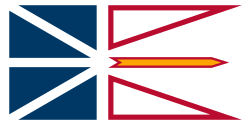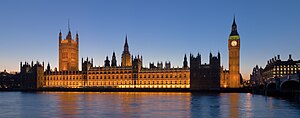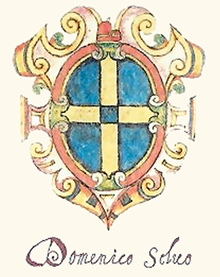| Main | Topics and categories | Tasks and projects |
The Politics portal
Politics (from Ancient Greek πολιτικά (politiká) 'affairs of the cities') is the set of activities that are associated with making decisions in groups, or other forms of power relations among individuals, such as the distribution of resources or status. The branch of social science that studies politics and government is referred to as political science.
It may be used positively in the context of a "political solution" which is compromising and non-violent, or descriptively as "the art or science of government", but also often carries a negative connotation. The concept has been defined in various ways, and different approaches have fundamentally differing views on whether it should be used extensively or in a limited way, empirically or normatively, and on whether conflict or co-operation is more essential to it.
A variety of methods are deployed in politics, which include promoting one's own political views among people, negotiation with other political subjects, making laws, and exercising internal and external force, including warfare against adversaries. Politics is exercised on a wide range of social levels, from clans and tribes of traditional societies, through modern local governments, companies and institutions up to sovereign states, to the international level.
In modern nation states, people often form political parties to represent their ideas. Members of a party often agree to take the same position on many issues and agree to support the same changes to law and the same leaders. An election is usually a competition between different parties.
A political system is a framework which defines acceptable political methods within a society. The history of political thought can be traced back to early antiquity, with seminal works such as Plato's Republic, Aristotle's Politics, Confucius's political manuscripts and Chanakya's Arthashastra. ( Full article...)
Selected article
JFK is a 1991 American film directed by Oliver Stone. It examines the events leading to the assassination of President John F. Kennedy and alleged subsequent cover-up through the eyes of former New Orleans district attorney Jim Garrison (played by Kevin Costner). Garrison filed charges against New Orleans businessman Clay Shaw ( Tommy Lee Jones) for his alleged participation in a conspiracy to assassinate the president, for which Lee Harvey Oswald ( Gary Oldman) was found responsible by two Government investigations: the Warren Commission, and the House Select Committee on Assassinations (which concluded that there was another assassin shooting with Oswald). The film was adapted by Stone and Zachary Sklar from the books On the Trail of the Assassins by Jim Garrison and Crossfire: The Plot That Killed Kennedy by Jim Marrs. Stone described this account as a " counter-myth" to the "fictional myth" of the Warren Commission. The film became embroiled in controversy. Upon JFK's theatrical release, many major American newspapers ran editorials accusing Stone of taking liberties with historical facts, including the film's implication that President Lyndon B. Johnson was part of a coup d'état to kill Kennedy. After a slow start at the box office, Stone's film gradually picked up momentum, earning over $205 million in worldwide gross. JFK went on to win two Academy Awards and was nominated for eight in total, including Best Picture. The film was one of three films Stone made about the American Presidency, followed later by Nixon with Anthony Hopkins in the title role and W. with Josh Brolin as George W. Bush.
Featured picture

Dr. Javier Solana was the High Representative for the Common Foreign and Security Policy and the Secretary-General of both the Council of the European Union (EU) and the Western European Union (WEU). This photograph shows him discussing with students of RWTH Aachen University, one day before receiving the International Charlemagne Prize of the city of Aachen.
Selected quote
Selected biography
Domenico Selvo (died 1087) was the 31st Doge of Venice, serving from 1071 to 1084. During his reign as Doge, his domestic policies, the alliances that he forged, and the battles that the Venetian military won and lost laid the foundations for much of the subsequent foreign and domestic policy of the Republic of Venice. He avoided confrontations with the Byzantine Empire, the Holy Roman Empire, and the Roman Catholic Church at a time in European history when conflict threatened to upset the balance of power. At the same time, he forged new agreements with the major nations that would set up a long period of prosperity for the Republic of Venice. Through his military alliance with the Byzantine Empire, Emperor Alexios I Komnenos awarded Venice economic favors with the declaration of a golden bull that would allow for the development of the republic's international trade over the next few centuries.
Did you know (auto-generated) -

- ... that a Chinese corruption investigation into Gao Yan has been interpreted as a political move against Li Peng, then second-in-command of the Communist Party of China?
- ... that prior to entering politics, Herbert Salvatierra led a troupe of carnival comparsas?
- ... that Australian senator Ben Small had been a ship's officer, bar owner, paramedic, ambulance trainer, and logistician before entering politics?
- ... that American football wide receiver Bo Hines transferred to Yale University as a freshman to further his political ambitions?
- ... that before she was elected to the Parliament of Armenia, Maria Karapetyan spray-painted political graffiti on the streets of Yerevan in support of Nikol Pashinyan?
- ... that before becoming the mayor of Medan, Indonesia, Agus Salim Rangkuti acted in movies and oversaw a real-life political prison camp?
More did you know...
- ...that Republican National Committee official Rob Bickhart wrote a PowerPoint presentation for a meeting of Republican fundraisers which depicted Nancy Pelosi as Cruella de Vil?
- ...that following its 1994 national convention, the Progress Party of Norway lost its deputy leader and the four MPs Christiansen, Hillgaar, Wetterstad and Bråthen?
- ...that Democrat Mayor Thomas G. Dunn, national co-chairman of Democrats for Nixon, was "read out of the party" for his support of Republican President Richard Nixon's 1972 re-election bid?
- ...that Matt Taibbi's book Griftopia has been described as a "necessary ... corrective" to the assertion that bubbles are an inevitable part of the market economy?
- ...that in the book Net.wars, author Wendy M. Grossman attributes Internet conflict in the 1990s to culture shock from an influx of users?
- ...that former California Assembly Republican Leader and California Republican Party Chair Robert W. Naylor was editor of The Stanford Daily while he was a student at Stanford University?
- ...that just before the invasion of Poland, members of the German minority from Deutscher Volksverband were trained in sabotage by the Abwehr agents arriving in Poland from Germany?
- ...that tiao-kuai is the quasi-federal administration system in China?
In this month
- April 1, 1979 – Iran's government becomes an Islamic Republic by a 98% vote, overthrowing the Shah officially.
- April 9, 1948 – the period known as La Violencia begins with the assassination of Colombian Liberal Party leader Jorge Eliécer Gaitán. For the next ten years Liberals, Communists and Conservatives would fight each other in the conflict.
- April 9, 2003 – Government of Saddam Hussein overthrown by American forces in Iraq.
- April 19, 2006 – Han Myung-sook becomes South Korea's first female Prime Minister.
- April 24, 2005 – Presidential elections in Togo return Faure Gnassingbe to power two months after he was installed by the military following the death of his father, Gnassingbé Eyadéma.
- April 28, 1937 – Saddam Hussein, the President of Iraq was born.
- April 30, 1945 – Adolf Hitler and his wife Eva Braun, commit suicide as the Red Army approached the Führerbunker in Berlin. Karl Dönitz succeeds Hitler as President of Germany; Joseph Goebbels succeeds Hitler as Chancellor of Germany.
News and Current events
- August 11: 4 local government areas in New South Wales, Australia locked down after COVID-19 case
- August 11: Australia: AstraZeneca vaccine access expanded by Victorian government
- August 1: Australia: Victorian lockdown lifted
- July 29: Tunisia's president dismisses prime minister, suspends parliament
- July 25: Australia: Wikinews interviews Reg Kidd, mayor of the City of Orange, about COVID-19 lockdown and local government
- July 23: South Australia enters week-long lockdown to contain COVID-19 Delta variant spread
- July 21: Technological University Dublin senior lecturer Dr Lorcan Sirr speaks to Wikinews on housing market in Ireland
- July 21: Three rural councils in New South Wales, Australia enter 7-day lockdown
- July 21: Australia: Victoria lockdown extended by a week with 85 active cases recorded
- July 15: California governor signs new state budget, eligible Californians to get stimulus payments
Topics and categories
General images
Related portals
Associated Wikimedia
The following Wikimedia Foundation sister projects provide more on this subject:
-
Commons
Free media repository -
Wikibooks
Free textbooks and manuals -
Wikidata
Free knowledge base -
Wikinews
Free-content news -
Wikiquote
Collection of quotations -
Wikisource
Free-content library -
Wikiversity
Free learning tools -
Wiktionary
Dictionary and thesaurus























































